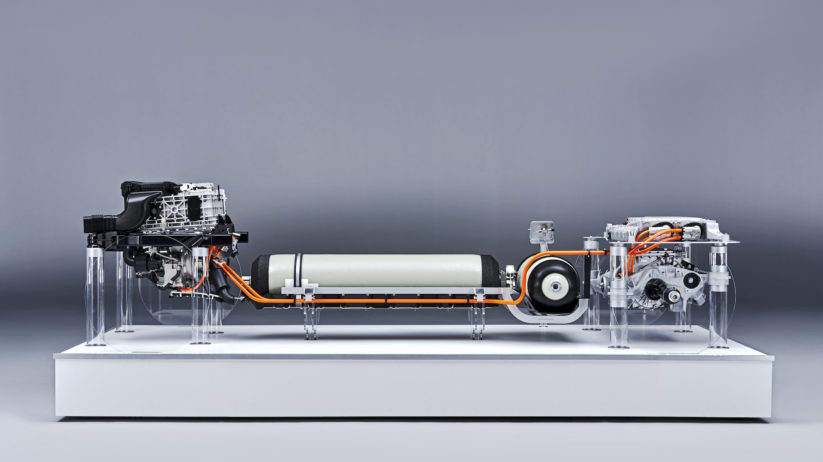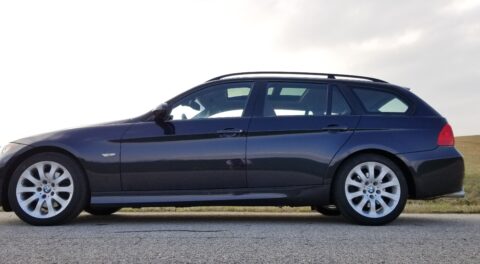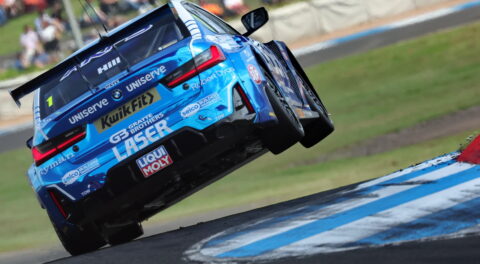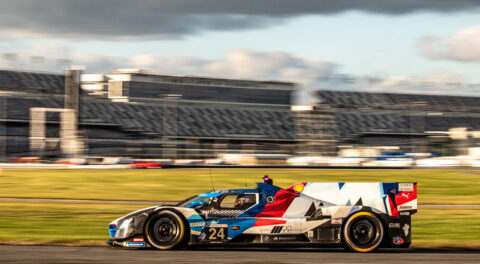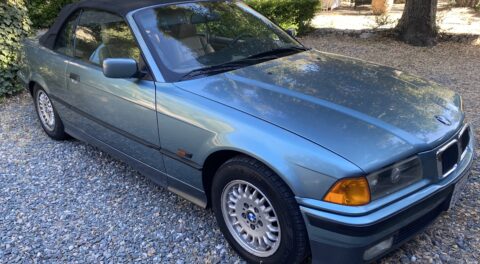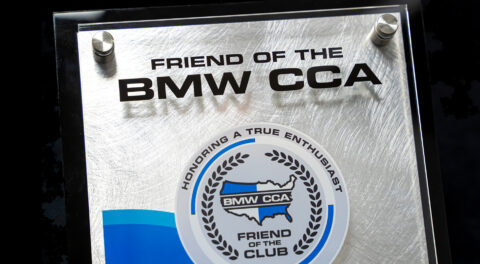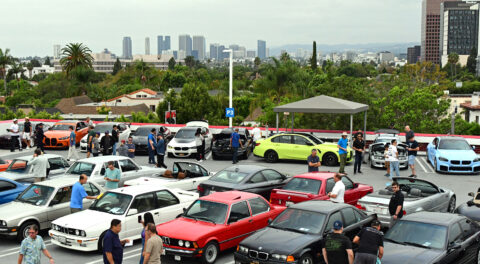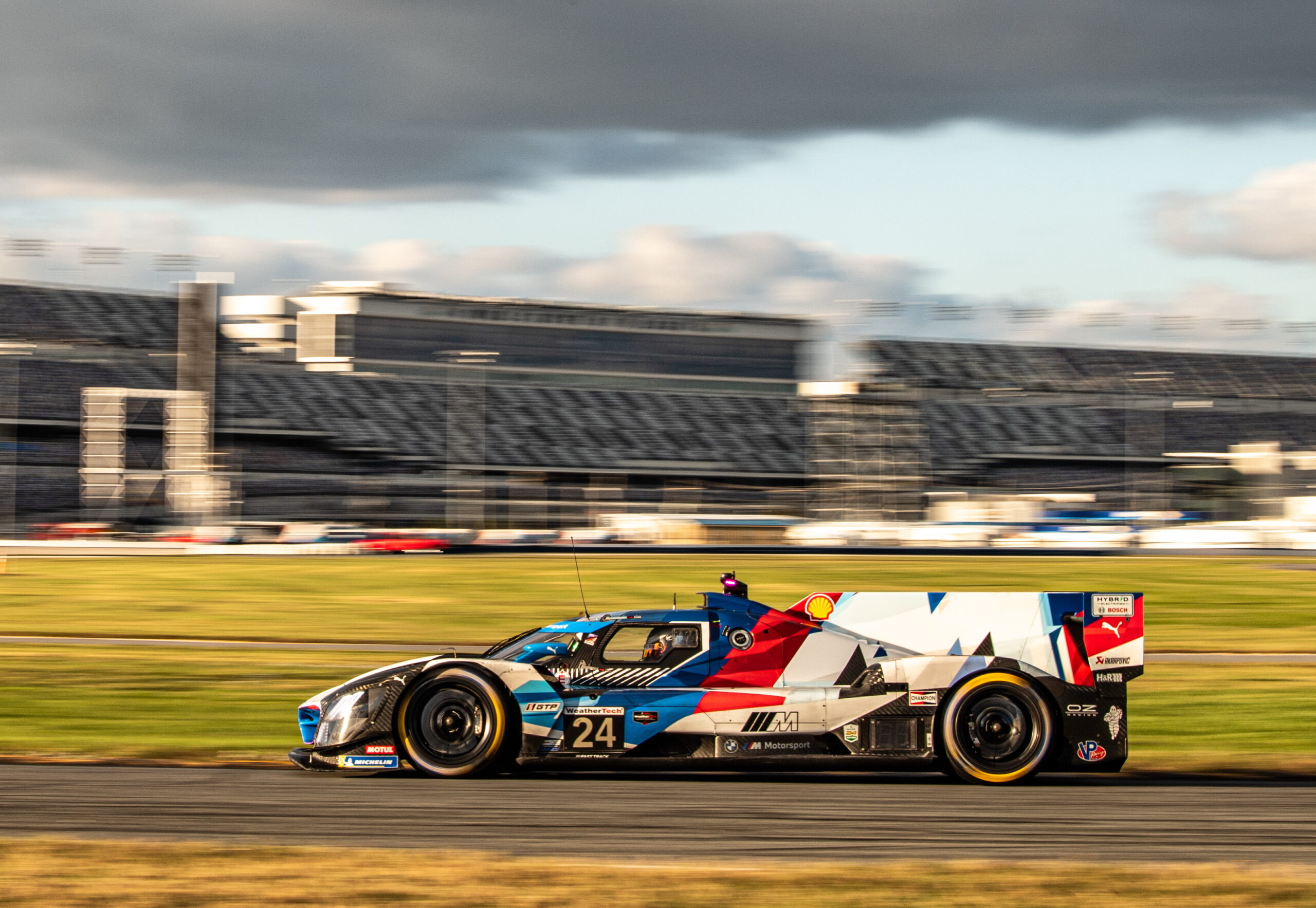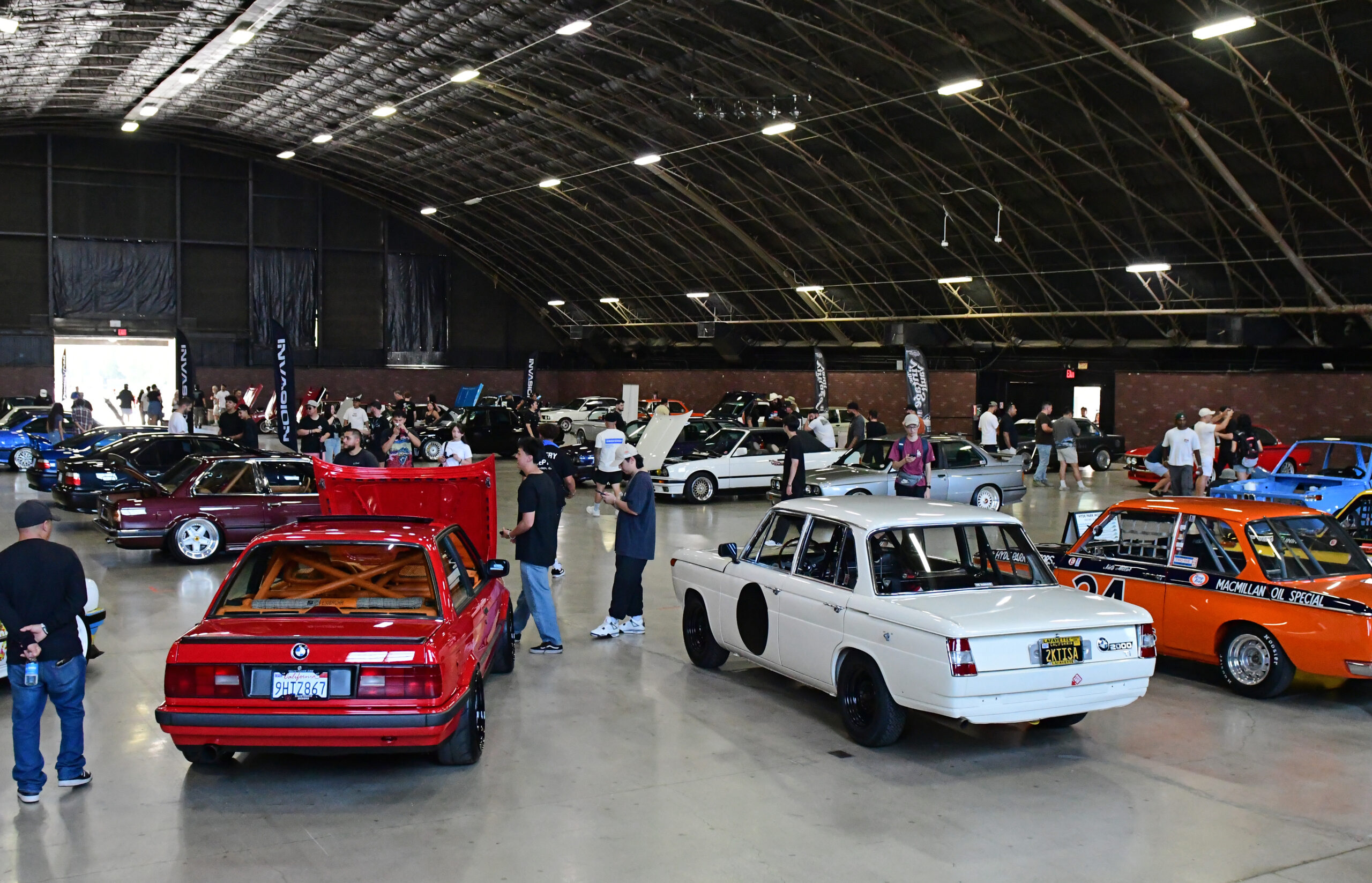BMW is forging ahead with the advancement of a hydrogen fuel-cell-powered electric vehicle concept. Since unveiling of the i Hydrogen Next at least year’s Frankfurt Auto Show (essentially an electric X5 with a hydrogen fuel cell used to generate power), development has continued, and BMW recently previewed what something resembling the production drivetrain might look like.
Before you get too excited about the prospects of an EV with the range and refueling properties of an internal combustion vehicle, it’s important to note that there are still a myriad of complexities surrounding series production and volume introduction. BMW says an FCEV (fuel-cell electrical vehicle) model won’t arrive until at least the second half of this decade, but there are some encouraging plans on the horizon.
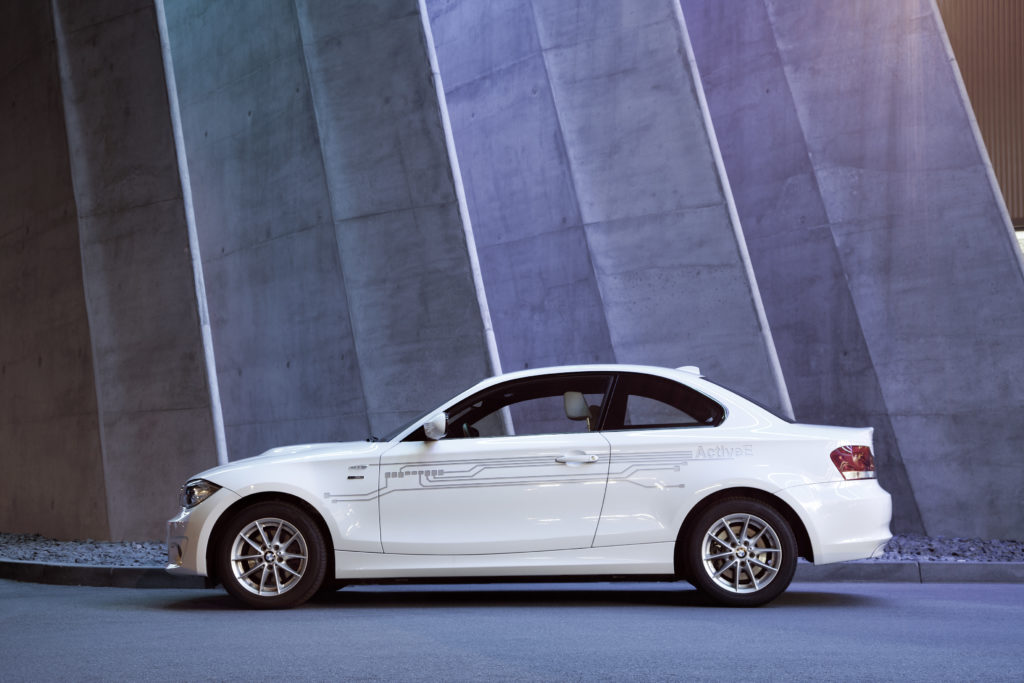
Remember the BMW ActiveE? You’d be forgiven for forgetting the BMW EV pilot program that served as a precursor to the i3. Based on the E82 1 Series coupe, BMW produced 1,100 ActiveE demonstration units at the Leipzig plant starting in July of 2011 and proceeded to lease them to willing customers, or Electronauts as BMW called them, around the world. A staggering 700 were allocated to the U.S., and Electronauts signed themselves into two-year leases with full maintenance coverage. After the ActiveE pilot program concluded, all cars were bought back by BMW, with the vast majority crushed and recycled, and a few spared for museum and technical demonstration or educational purposes.
BMW plans to have another program rolled out for a fuel-cell EV rolled out by 2022. This test vehicle is going to be based on the current-generation G05 X5, and we got a great look at it last September in Frankfurt. Large vehicles like the X5 are particularly well disposed to use hydrogen as an energy source to power electric drive motors. Their upright construction allows for the fitment of large hydrogen storage tanks beneath the floor, and although these containers are optimized in terms of weight and form factor, having a comfortably-sized chassis to start with helps.
The advantages of using a hydrogen fuel cell are numerous. In addition to zero emissions, the hydrogen storage tanks used in the system BMW is developing can be refilled in as little as four minutes—just like stopping for gas. This eliminates downtime current EVs require to recharge, either at home in the garage or at a remote charging station between far-flung destinations. A battery is still required, but only for what BMW refers to as peak power, which is used during max acceleration or when overtaking other vehicles. This unit is obviously quite different than the battery packs that line the floors of modern EVs which weigh well over 1,000 pounds in something like a Tesla Model S.
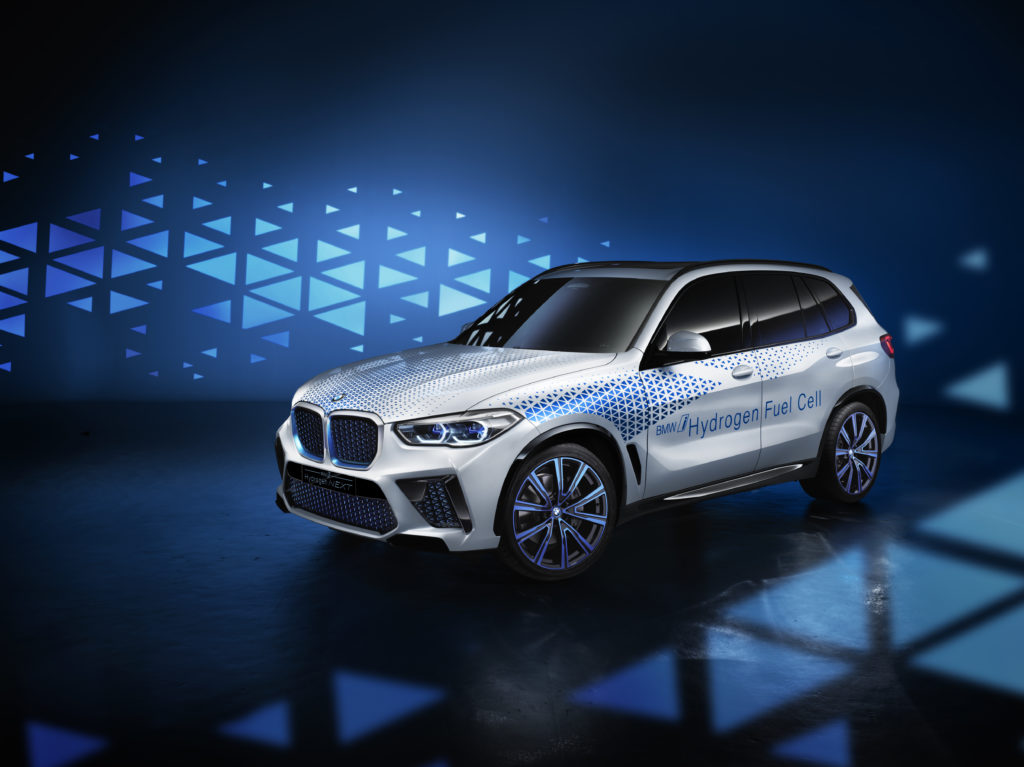
While the fuel cell system alone in the BMW i Hydrogen Next can develop up to 170 horsepower, the peak power battery fitted atop the electric drive (eDrive) motor brings total output up to the equivalent of 374 horsepower. That’s enough to create the signature driving experience BMW bas built a brand image on over the preceding 40 years, and a healthy figure for an EV with just one axle putting power to the ground. The fifth-generation eDrive motor at work share parts commonality with the system used in the upcoming iX3, and BMW is part of a research project in Germany called BRYSON to develop space- and weight-efficient hydrogen storage tanks with a number of private and public sector firms and entities. This isn’t the only collaboration BMW is part of, as the automaker has been working on hydrogen with Toyota since 2013. In 2017, Toyota and BMW helped to found the Hydrogen Council, a consortium that has since welcomed 80 other members in the ensuing years.
It’s all part of BMW’s multi-faceted approach to the future of mobility, and the next 100 years. While internal combustion is scheduled to stick around for at least another 30 years, BMW is building platforms that can serve as the basis for purely electric, hybrid, gasoline, or diesel-powered models. Whether or not hydrogen fuel cells become part of that product mix will take several years to find out, but the prospects are nonetheless intriguing.—Alex Tock
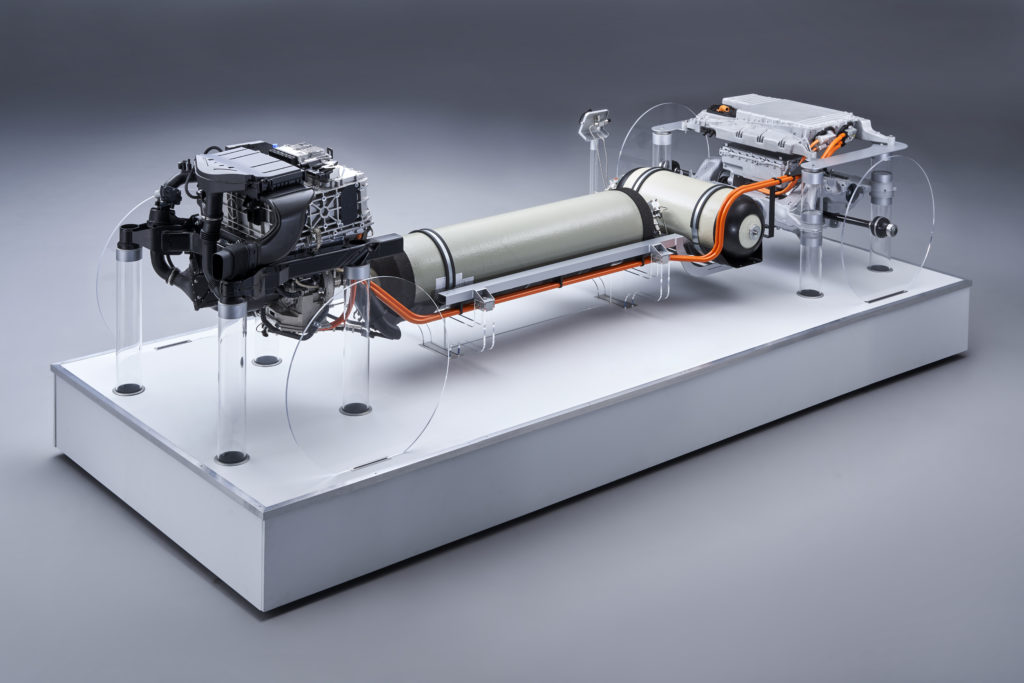
[Photos courtesy BMW AG.]

